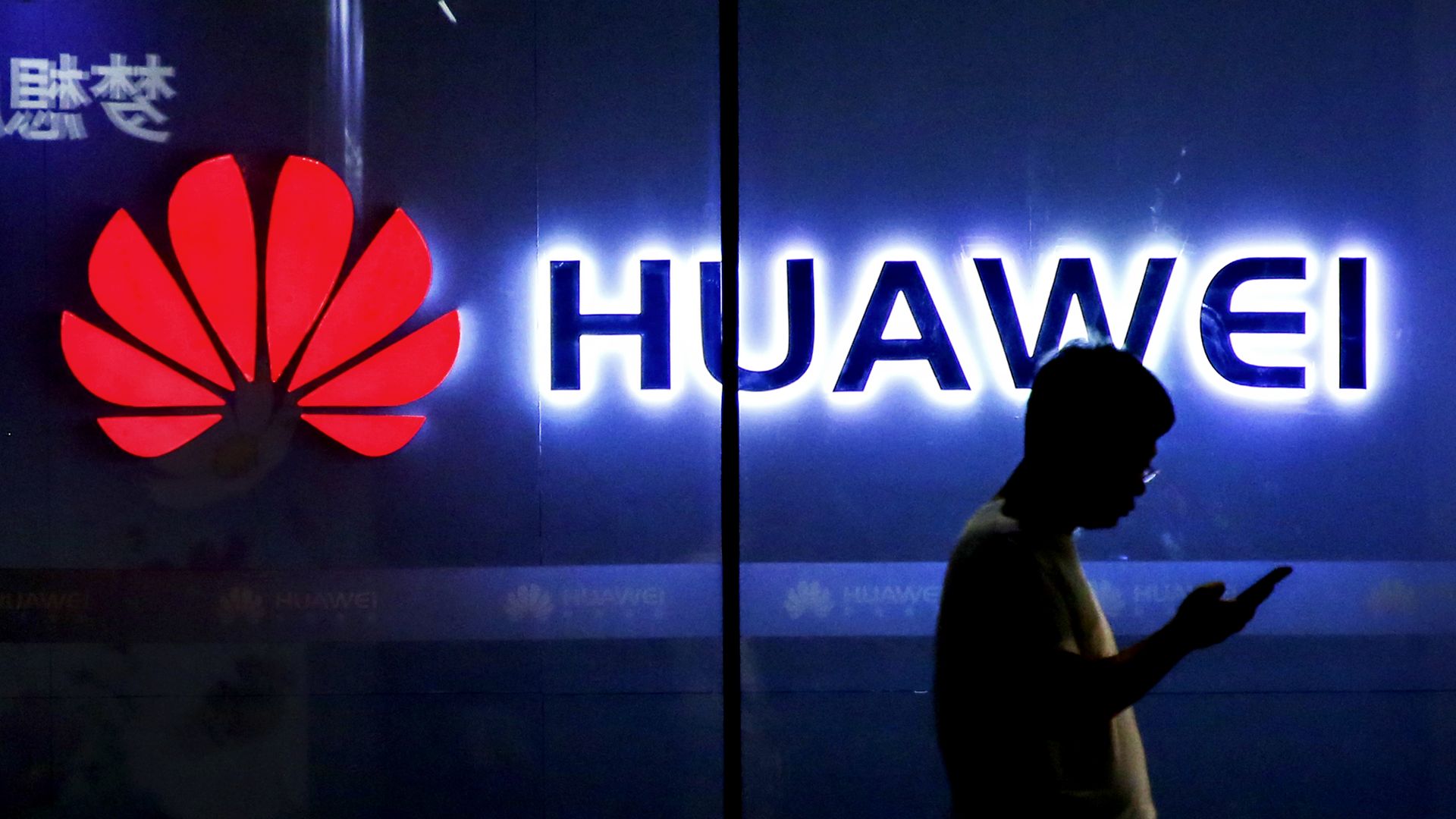Huawei exec: Don't mix trade war and security
Add Axios as your preferred source to
see more of our stories on Google.

Photo: VCG/VCG via Getty Images
Huawei's U.S. security chief Andy Purdy says the U.S. is right to want to make sure its networks are secure. But he maintains that, in the quarrel the Trump administration has picked with his company, it has focused on the wrong things and mixed up trade issues with security concerns.
What they're saying: "I don’t trust anybody. We cannot and should not trust anybody," said Purdy, who was an assistant U.S. attorney and acting director of the U.S. national cybersecurity division before joining Huawei in 2012. "That’s the way we make America safer."
Details: Rather than simply exclude Huawei from U.S. networks, Purdy encouraged the government to sit down with the Chinese network vendor and create a system to ensure its products are safe.
- "There are ways to test products for back doors," he said, adding that wireless carriers, not network equipment vendors, are in charge of the data and are vigorously ensuring it isn't leaving their hands.
Context: The U.S. has been increasingly cracking down on Huawei, which it characterizes as both a security risk and an intellectual property thief.
- The largest American phone carriers have long been been effectively prohibited from using Huawei gear.
- But in recent weeks the Trump administration has ratcheted up the pressure, excluding U.S. companies from most business with Huawei. That has hurt the company's business prospects globally, and could stop its fast-growing device business in its tracks.
Purdy also lamented the fact that concerns over Huawei are being mixed in with the broader U.S.-China trade dispute.
- "We don’t want to be part of trade talks," Purdy said. "We don’t like [the] fact that we are kind of in the middle."
The other side: Sens. Mark Warner and Marco Rubio sent a letter to Secretary of State Mike Pompeo and U.S. Trade Representative Robert Lighthizer, urging that the Huawei issue be kept separate from trade discussions.
- "In no way should Huawei be used as a bargaining chip in trade negotiations," they wrote. "Instead, the U.S. should redouble our efforts to present our allies with compelling data on why the long-term network security and maintenance costs on Chinese telecommunications equipment offset any short-term cost savings."
Our thought bubble: Huawei may decry the mixing of trade and security concerns — and that indeed seems like bad national security policy. But being a pawn in trade talks might not be so bad for the company: Huawei could benefit if China makes looser restrictions on Huawei a part of a demand in future bargaining.
Meanwhile, market research firm IHS says the U.S. ban is already having a significant revenue impact on some U.S. component suppliers, including memory maker Micron and hard drive maker Western Digital.
